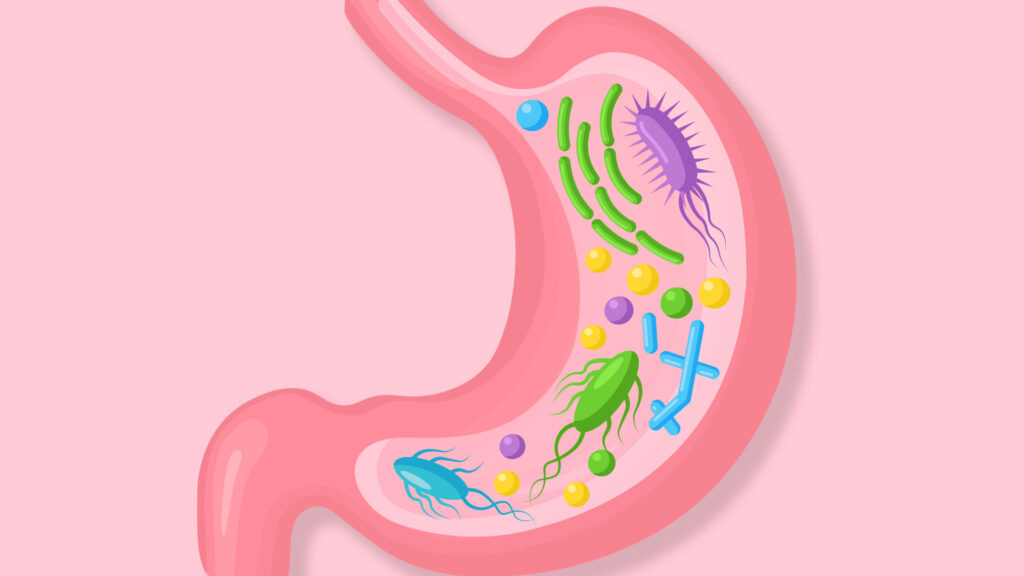You’ve likely heard the buzz around “gut health” and its pivotal role in overall well-being. Beyond a mere catchphrase, maintaining a healthy gut involves a delicate balance of microorganisms in your digestive tract, influencing everything from immune strength to emotional resilience.
In this comprehensive guide, we’ll delve into the intricacies of gut health, exploring what it entails, why it’s crucial, and science-backed strategies to enhance it naturally.

Table of Contents
Understanding Gut Health
Gut health isn’t just about the absence of gastrointestinal issues; it encompasses a spectrum of factors, including digestion efficiency, a stable microbiome, robust immune function, and more. Dr. Sabine Hazan, a leading gastroenterologist, emphasizes that a healthy gut contributes to a resilient immune system, improved mood, effective digestion, and overall heart and brain health. The gut communicates with the brain, shaping various facets of well-being through hormonal and neural pathways.
The Role of Microbiome
At the heart of gut health lies the microbiome—a diverse community of bacteria, viruses, and fungi inhabiting the human body. Dr. Hazan underscores the pervasive presence of these microorganisms in various bodily regions, influencing health conditions ranging from cancer to infectious diseases. The microbiome, comprising around 10,000 different microbial species, plays a pivotal role in nutrient absorption, disease resistance, and overall physiological balance.
Check Out: Top 5 Gut Health Supplements in the UK for Optimal Digestive Wellness
Significance of Gut Health
The gut, or gastrointestinal (GI) system, serves as a central hub for digesting food, absorbing nutrients, and fueling the body. Alicia Romano, a specialized clinical dietitian, highlights its multifaceted role, not only in physical digestion but also in tight communication with the brain. Over 70% of immune cells reside in the gut, emphasizing its integral part in the body’s immune defense. Maintaining a healthy gut is paramount for sustained well-being.

Science-Backed Strategies for Gut Health
- Fiber-Rich and Probiotic-Packed Foods: Research suggests that a diet rich in fiber stimulates the growth of beneficial bacteria in the gut. Incorporate foods like sweet potatoes, spinach, and whole grains for natural gut enhancement. Fermented foods like yogurt and sauerkraut, containing probiotics, further support gut health.
- Regular Exercise: Movement proves to be a potent influencer on the microbiome. Both animal and human studies indicate that exercise enhances the diversity of healthy gut bacteria. High-intensity aerobic training, in particular, contributes to gut bacteria diversity and overall wellness.
- Moderate Alcohol Intake: Excessive alcohol consumption is linked to gut inflammation, leading to discomfort, ulcers, and bacterial infections. Limiting alcohol intake is essential for maintaining a healthy balance in the gut microbiota.
- Stress Management: Recognizing the intricate “gut-brain connection,” stress management becomes crucial. Anxiety and depression can impact gut health, and vice versa. Engaging in activities to manage stress, such as exercise, may positively influence gut health.
- Consider Probiotic Supplements: While not a panacea, probiotic supplements may offer a boost to the microbiota under specific conditions. Consultation with a healthcare provider is advisable to determine the suitability of probiotic supplements based on individual health conditions.
Signs of an Unhealthy Gut and Monitoring
Changes in bowel habits, unexplained weight loss, rectal bleeding, and abnormal pain are potential indicators of an unhealthy gut. Monitoring your stool using the Meyers Scale can provide insights into your digestive health. Seeking medical attention for persistent symptoms is crucial, and stool analysis may be recommended for a comprehensive evaluation.
Also See: Healing Leaky Gut: Expert Recommendations and Effective Treatment Strategies
FAQs on Gut Health
- Causes of a Weak Gut: Lifestyle factors like smoking, excessive alcohol consumption, sedentary behavior, poor sleep quality, and specific dietary choices can contribute to a weakened gut.
- Strengthening Gut Health: Embrace a diet rich in fiber and fermented foods, exercise regularly, limit alcohol intake, manage stress, and consider probiotic supplements after consulting with a healthcare provider.
- Worst Foods for Gut Health: Red and processed meats, ultra-processed foods, refined sugars, and certain artificial sweeteners may negatively impact gut health.
- Best Foods for Gut Health: Fiber-rich fruits and vegetables, whole grains, and fermented foods like kimchi and sauerkraut promote a healthy microbiome.
- Supplements for Gut Health: Probiotic supplements may aid in digestion, nutrient absorption, and disease prevention. Consultation with a healthcare provider is recommended for personalized advice.

Prioritizing your gut health goes beyond trendy wellness advice—it’s a fundamental aspect of holistic well-being. Armed with science-backed strategies, understanding the signs of an unhealthy gut, and considering proactive measures, you can embark on a journey towards improved digestive well-being.
Whether through dietary adjustments, lifestyle modifications, or supplements, nurturing your gut sets the stage for a healthier and more resilient you.


